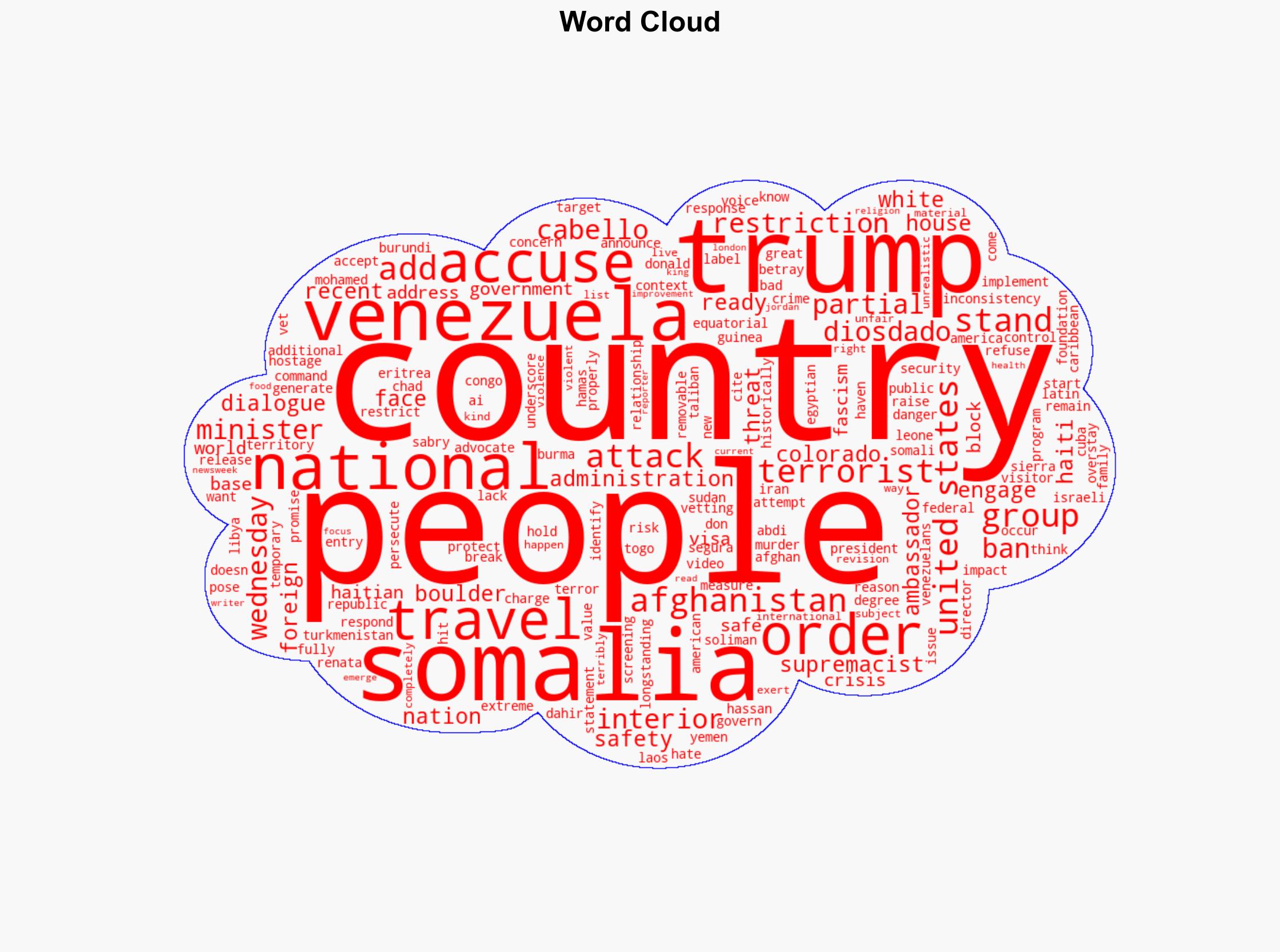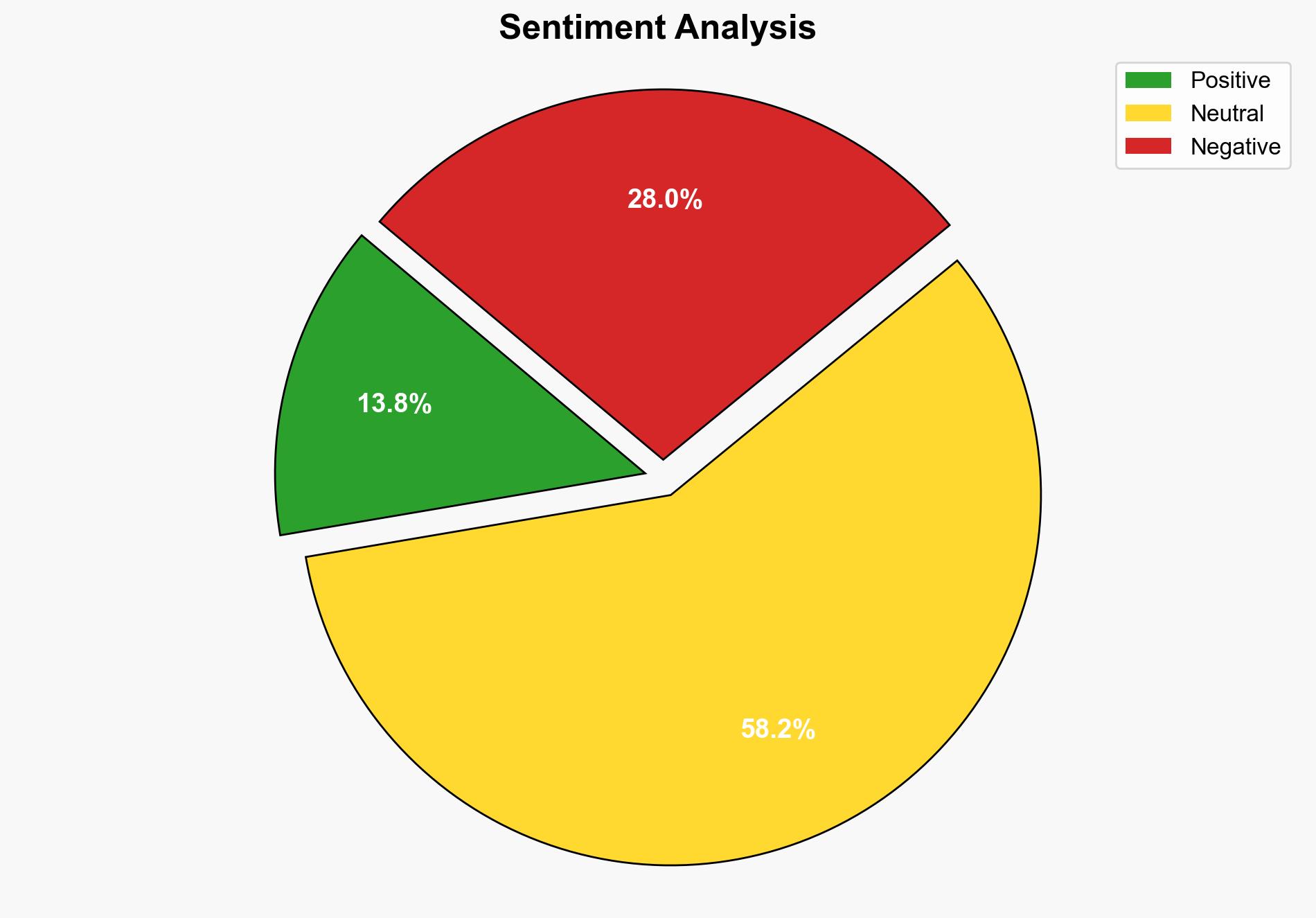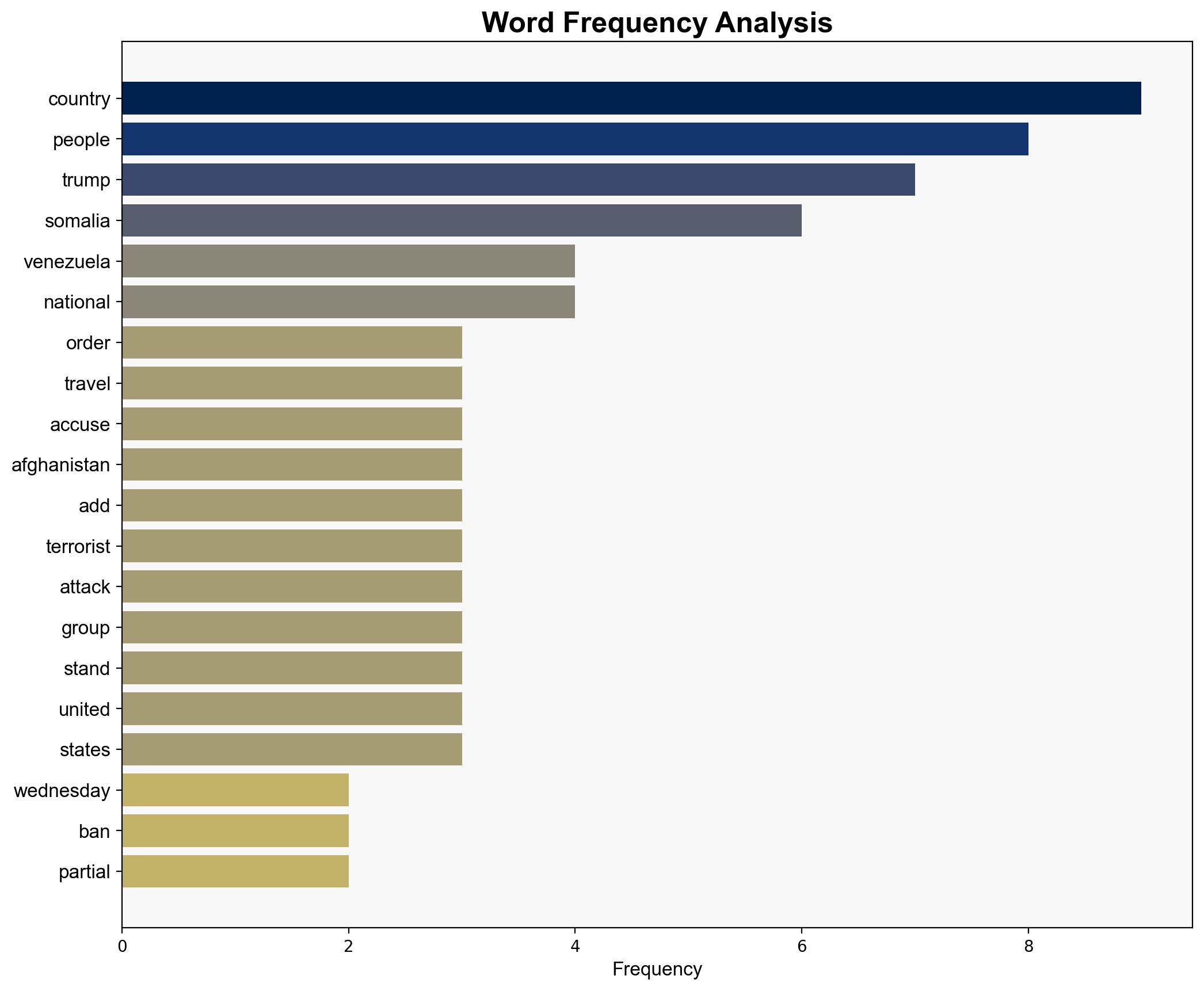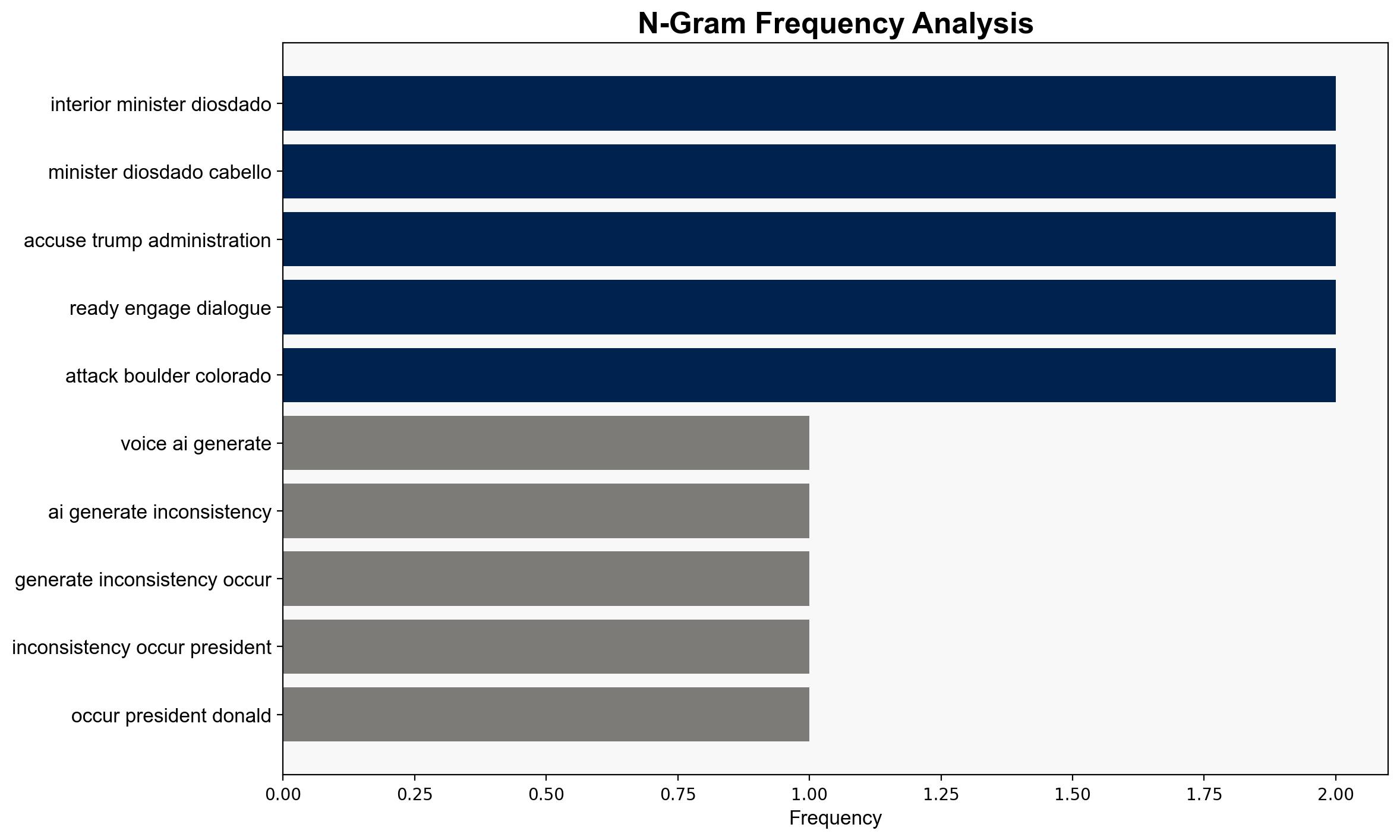How Countries on Trump’s Travel Ban List Have Responded – Newsweek
Published on: 2025-06-05
Intelligence Report: How Countries on Trump’s Travel Ban List Have Responded – Newsweek
1. BLUF (Bottom Line Up Front)
The recent travel ban issued by the Trump administration has elicited varied responses from the affected countries. Key findings indicate heightened diplomatic tensions, particularly with Venezuela and Somalia, while other nations express readiness for dialogue. The ban is framed as a measure against national security threats, yet it risks exacerbating geopolitical instability and straining international relations. Recommendations focus on diplomatic engagement and reassessment of the ban’s criteria to mitigate backlash and potential security risks.
2. Detailed Analysis
The following structured analytic techniques have been applied to ensure methodological consistency:
Causal Layered Analysis (CLA)
Surface events reveal immediate diplomatic protests and accusations of supremacism from Venezuela. Systemic structures show a pattern of strained U.S. relations with countries labeled as security threats. Worldviews reflect a clash between U.S. security policies and perceptions of fairness and justice in the international community. Myths surrounding U.S. global leadership and moral authority are challenged.
Cross-Impact Simulation
The travel ban could lead to increased regional instability, particularly in areas with existing conflicts or economic dependencies on the U.S. Countries like Somalia and Venezuela may seek alliances with U.S. adversaries, impacting regional security dynamics.
Scenario Generation
Divergent narratives include a scenario where increased diplomatic efforts lead to a revised travel ban, improving international relations. Conversely, a lack of engagement could result in further isolation and retaliatory measures from affected countries.
3. Implications and Strategic Risks
The travel ban may exacerbate existing political tensions and contribute to economic instability in affected regions. There is a risk of retaliatory actions, including cyber threats or military posturing, particularly from nations with strained U.S. relations. The ban could also impact global counter-terrorism efforts by alienating potential allies.
4. Recommendations and Outlook
- Engage in diplomatic dialogue with affected countries to address grievances and explore mutually beneficial security measures.
- Reassess the criteria for the travel ban to ensure alignment with broader strategic goals and international norms.
- Scenario-based projections suggest that proactive engagement could lead to improved relations (best case), while continued isolation may heighten tensions (worst case). The most likely scenario involves a mixed response with both challenges and opportunities for U.S. foreign policy.
5. Key Individuals and Entities
Diosdado Cabello, Dahir Hassan Abdi, Renata Segura
6. Thematic Tags
national security threats, cybersecurity, counter-terrorism, regional focus




